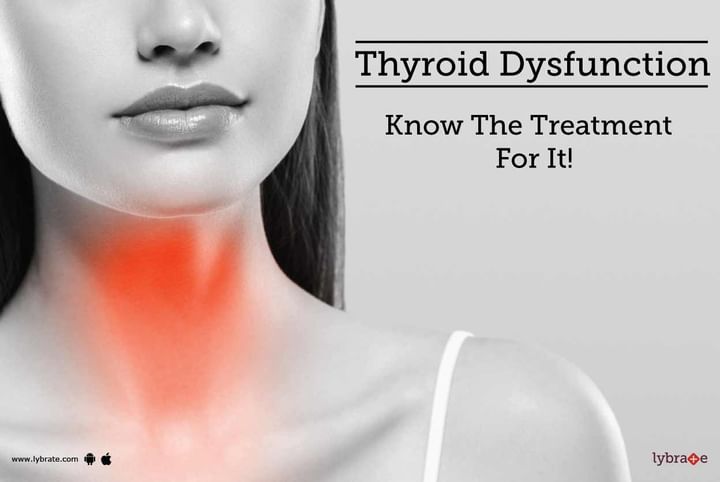Thyroid Dysfunction - Know The Treatment For It!
Your thyroid is a small, butterfly-shaped gland situated at the base of the front of your neck, just below your Adam's apple. Hormones produced by the thyroid gland do everything from maintaining your heart rate to regulating your body temperature to controlling your body weight.
Millions of people worldwide suffer from thyroid dysfunction and several don't know about it. This is primarily because people don't tend to link the common symptoms first with a thyroid disease. Some people suffer from mood swings, trouble with memory, weight gain or fatigue, all of which they look upon individually as a problem and hence not piecing together the puzzle of their real medical condition. Here are a few insights that'll help you cope:
How does the thyroid gland work: About 85% of the hormone produced by our thyroid gland is T4, which is an inactive form of the hormone. After T4 is made, a small amount of is converted into T3, which is the active form of thyroid hormone. T3 is then converted to free T3 or reverse T3. It is the free T3 that forms the base of thyroid functions.
What is hypothyroidism: Hypothyroidism, or an underactive thyroid, accounts for 90% of all thyroid imbalances. The signs and symptoms of hypothyroidism develop slowly, often over a number of years, which is why it is often missed from regular treatment charts. For instance, fatigue and weight gain are often attributed to stress, lifestyle changes and natural ageing process. But as time goes by, some of the symptoms show a higher level of manifestation like muscle weakness, elevated blood cholesterol, thinning hair, puffy face, hoarse voice and slowed heart rate.
If left untreated, hypothyroidism may lead to goiter (enlarged thyroid), increased memory problems, low blood pressure, decreased breathing and in extreme cases, unresponsiveness and coma.
This disease may also occur in newborns, infants and children. Symptoms include excessive sleepiness, poor muscle tone and constipation. It is important to diagnose and treat it early, as in severe cases it may lead to mental and / or physical retardation. In children and teens, it can result in stunted growth, and delayed puberty.
What is hyperthyroidism: It's the opposite of hypothyroidism, which means in this case the thyroid overproduces hormones. Common symptoms include lack of sleep, weakness, irregular heartbeat, elevated blood pressure and hand tremors. While genetics are partially responsible for it, it is also triggered by autoimmune disorder. Hyperthyroidism can be treated with medication, radioactive iodine (not the first or best choice as it harms white cells too) and surgery. Keeping a focus on your calcium and sodium intake is crucial to curb the disorder.
Treatments: Conventional treatments rely mainly on drugs and surgery. Alternative treatments involve diet and lifestyle changes. Taking multivitamins, going gluten free, getting a good night sleep, and reducing stress is all said to help heal your thyroid gradually.



+1.svg)
